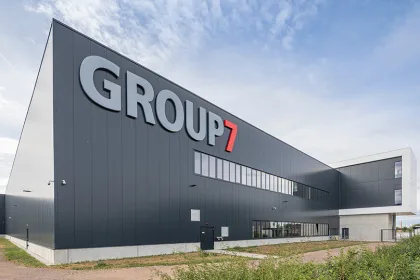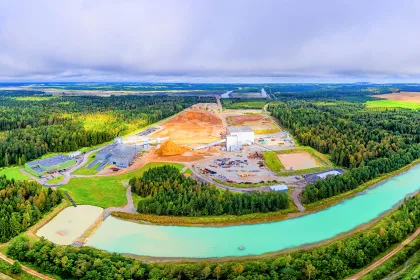Forbes Under 30 entrepreneur Abbie Morris, explores the AI technology providing credibility to ambitious sustainability claims.
global warming dangerously close to spiralling out of control, the sustainability agenda is more crucial than ever. Companies are under heightened scrutiny and as a result, pressure to adapt and re-shape their strategies to ensure sustainability is a priority.
Recently, the NewClimate Institute in collaboration with the Carbon Market Watch released a report which found that climate pledges by 25 of the world’s largest companies are not being met.
Companies analysed in the report include Google, Amazon, IKEA, Apple and Nestlé, yet only one of the 25 corporations evaluated had a net-zero pledge with “reasonable integrity”.
These are household names who have made big pledges and have fallen short. Whilst this is shocking, it’s not something new.
Change needs to take place from companies right at the top to those smaller and independent businesses.
The Competition and Markets Authority reported that more than 50 percent of UK consumers are taking environmental considerations into account and increasingly seeking to shop sustainably. However, 40 percent of green claims made by companies are misleading.
Most companies have made some kind of commitment to the environment, but many have not made it explicit in terms of the products and services they sell. Consequently, key performance indicators such as brand trust, attachment and commitment are badly impacted, and brands are at breaking point.
Using vague language such as ‘natural’, ‘organic’ or ‘eco-friendly’ to describe a product, whilst knowing that not all the ingredients are sustainably sourced, is a form of greenwashing. Alpro Almond milk, for instance, recently had an advert banned after describing the milk as being “good for the planet”.
Although Alpro argued its customers would understand the slogan was referring to the fact plant-based products do not harm the environment as much, the ASA said this claim needed to be clear and inform customers that’s the reason why the almond milk was “good for the planet”.
Fashion is another industry rife with greenwashing claims. In fact, a study by the Changing Markets Foundation likewise reviewed 12 of the biggest British and European fashion brands, including ASOS, H&M and Zara, and found that 60 percent of the environmental claims could be classed as “unsubstantiated” and “misleading”.
Companies are under more scrutiny than ever before with the Competition and Markets Authority (CMA) set to name and shame greenwashing UK fashion firms in a crackdown on sweeping eco-friendly claims. So why is climate change high on the agenda but greenwashing on the rise?
The reality is many brands do not know how to reach their own sustainability goals they’ve mapped out. We should also be wary of playing the blame game as many businesses have sustainable intentions but lack the resources, knowledge and support to implement these across their business.
Consumers expect retailers to share their values on climate change and this is a lot of pressure for companies who are balancing revenue and the impact of COVID-19 on operations and consumer appetite.
Business leaders know there’s a problem, but they lack the right technology to act now. Consequently, they’re stuck in the old world and in danger of becoming irrelevant.
Sustainability Communication platforms can bridge the gap by helping brands to verify, manage, and deliver their sustainable product communications at scale. Powered by AI technology, they enable brands to meet their sustainability goals and move ahead of the competition with haste.
Part of the technology behind these platforms is verification software used to verify the accuracy of documents. Using algorithms, supply chain data is used to rank and report product claims. For example, if a company made certain green claims, the verification technology could ‘verify’ if these claims were true or in fact misleading. This doesn’t just provide the customers with knowledge but allows brands to be both credible and scientifically sound.
There’s a lot of investor appetite for sustainability, therefore if companies can show they’re environmentally sound then they can unlock the potential of increased revenue and shareholder interest.
Armed with the right technology and processes, brands can put an end to greenwashing for good. However, companies need support, not only to be fully compliant in terms of sustainability regulations but to also verify and communicate these credentials to their stakeholders.
This is why sustainability communication is so vital. The World Economic Forum recently published a report on the impact that sustainable credentials can have on business models, products and company value. If brands fail to invest today, they could find themselves falling on the wrong side of authorities, and history.

































